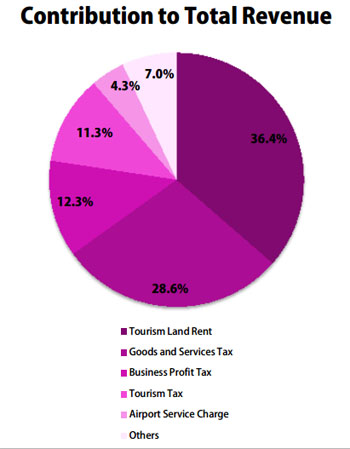In a month’s time on September 7 the eyes of the world will once again be on the Maldives. The second Presidential election will be a test not just of the island’s young democracy but also the statesmanship of its politicians.
How they behave and whether they are magnanimous in victory or defeat will be crucial to the Maldives’ status as a tourist destination and its standing in the world.
As a journalist I have had the privilege of visiting the islands over the last decade and have witnessed their transition from a dictatorship to a democracy and their struggles since to make that democracy work. In 2009 I reported on the first Presidential election for the international press and still remember the euphoria on the streets of Male’ which greeted the election of former President Nasheed and his coalition government. It was a great time to be a Maldivian because the country was filled with hope and optimism for the future.
Since those heady days however, I have reported on too many stories which have cast the Maldives in a bad light. The Swiss couple mocked during their wedding vows, the flogging of a 15-year old girl and the shutting down of the islands spas. But it has been the ongoing political protests and sporadic but very damaging violence on the streets of Male’ which have done the islands’ reputation abroad most harm.
The Maldives remains a beacon of hope for many Islamic countries around the world who would like to move to democracy. They will be following the election closely to see if the country’s politicians act responsibly. So will the UN, US, EU, Commonwealth, Indian and the Chinese governments. Each will be looking for a candidate who can unite the country and they can ‘do business with’.
It is therefore vital that the elections are free and fair and this is verified by independent election observers. Any violence, boycotts or protests has the potential not just to mar the election result but also inward investment and the islands’ vital tourism industry for years to come. The Chinese market, now the biggest source of visitors to the islands, is particularly sensitive to political unrest.
Whatever the controversy surrounding the transfer of power last February, the Maldives now has the opportunity to start again with a clean slate. I have met each of the candidates and they have a lot to offer. Former President Nasheed has experience and charisma, Gasim and Yameen are very successful businessmen who would be a new start and President Waheed has proved he can put together a unity government. They also all have very talented running mates. Dr Luthfy is an educational reformer, Dr Saeed and Dr Jameel have a wealth of experience in government and Thasmeen is a philanthropist and businessman. This is a great pool of talent which whoever wins the election can draw upon to help transform the islands’ future.
The test of their ability to work together and compromise could come soon after the election on September 7 if, as seems likely, there is no clear winner in the first round. Coalition governments can be strong governments if politicians work together in the national interest and not in their own interest.
Unfortunately, the Maldives does not have a good record of doing this over the last four years. The Maldivian people deserve better than a coalition of politicians who can come together to oppose someone but then cannot work together to run a successful government.
To reassure the Maldivian people each of them should now make a public pledge to work together in the national interest. This means saying nothing before or after the election to destabilise the Maldives democracy, economy or its international standing in the world. It also means showing their support for the tourism industry, tackling extremism and encouraging their supporters to give the winning candidate a chance.
The Maldives democracy is still very young but the second Presidential election will be a key test of whether all its politicians can act with restraint and maturity. Looking on will be an anxious international community who want to see a free and fair election and a strong government. Failure to deliver it risks further isolating the Maldives politically and economically.
When contemplating their future over the next month, each candidate would do well to remember Winston Churchill’s famous maxim about democracy: “Democracy is the worst form of government, except for all those other forms that have been tried from time to time”.
Nicholas Milton is a freelance journalist. He has reported on the Maldives for the last decade for the Guardian and Daily Telegraph newspapers. His website is www.nicholas-milton.com
All comment pieces are the sole view of the author and do not reflect the editorial policy of Minivan News. If you would like to write an opinion piece, please send proposals to [email protected]
